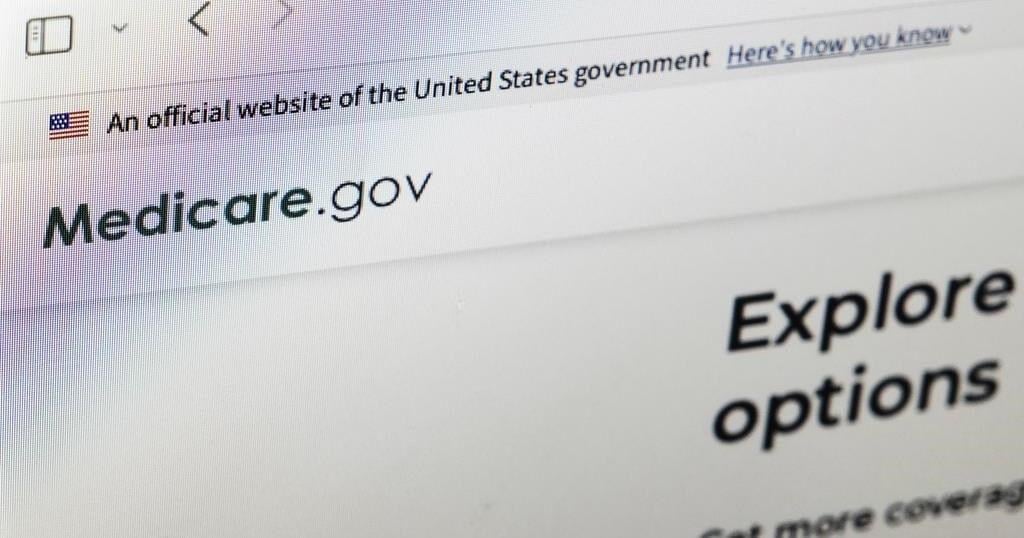Thinner benefits and coverage changes await many older Americans shopping for health insurance this fall. That’s if their plan is even still available in 2025.
More than a million people will probably have to find new coverage as major insurers cut costs and pull back from markets for Medicare Advantage plans, the privately run version of the federal government’s coverage program mostly for people ages 65 and older.
Industry experts also predict some price increases for Medicare prescription drug plans as required coverage improvements kick in.
Voters will learn about the insurance changes just weeks before they pick the next president and as Democrat Kamala Harris campaigns on promises to lower health care costs. Early voting has already started in some states.
“This could be bad news for Vice President Harris. If that premium is going up, that’s a very obvious sign that you’re paying more,” said Massey Whorley, an analyst for health care consulting company Avalere. “That has significant implications for how they’re viewing the performance of the current administration.”
Insurance agents say the distraction of the election adds another complication to an already challenging annual enrollment window that starts next month.
Insurers are pulling back from Medicare Advantage
Medicare Advantage plans will cover more than 35 million people next year, or around half of all people enrolled in Medicare, according to the federal government. Insurance agents say they expect more people than usual will have to find new coverage for 2025 because their insurer has either ended a plan or left their market.
The health insurer Humana expects more than half a million customers — about 10% of its total — to be affected as it pulls Medicare Advantage plans from places around the country. Many customers will be able to transfer to other Humana plans, but company leaders still anticipate losing a few hundred thousand customers.
CVS Health’s Aetna projects a similar loss, and other big insurers have said they are leaving several states.
Insurers say rising costs and care use, along with reimbursement cuts from the government, are forcing them to pull back.
Some people can expect a tough search
When insurers leave Medicare Advantage markets, they tend to stop selling plans that have lower quality ratings and those with a higher proportion of Black buyers, said Dr. Amal Trivedi, a Brown University public health researcher.
He noted that market exits can be particularly hard on people with several doctors and on patients with cognitive trouble like dementia.
Most markets will still have dozens of plan choices. But finding a new option involves understanding out-of-pocket costs for each choice, plus figuring out how physicians and regular prescriptions are covered.
“People don’t like change when it comes to health insurance because you don’t know what’s on the other side of the fence,” said Tricia Neuman, a Medicare expert at KFF, a nonprofit that researches health care.
Plans that don’t leave markets may raise deductibles and trim perks like cards used to pay for utilities or food.
Those proved popular in recent years as inflation rose, said Danielle Roberts, co-founder of the Fort Worth, Texas, insurance agency Boomer Benefits.
“It’s really difficult for a person on a fixed income to choose a health plan for the right reasons … when $900 on a flex card in free groceries sounds pretty good,” she said.
Don’t “sleep” on picking a Medicare plan
Prices also could rise for some so-called standalone Part D prescription drug plans, which people pair with traditional Medicare coverage. KFF says that population includes more than 13 million people.
The Centers for Medicare and Medicaid Services said Friday that premiums for these plans will decrease about 4% on average to $40 next year.
But brokers and agents say premiums can vary widely, and they still expect some increases. They also expect fewer plan choices and changes to formularies, or lists of covered drugs. Roberts said she has already seen premium hikes of $30 or more from some plans for next year.
Any price shift will hit a customer base known to switch plans for premium changes as small as $1, said Fran Soistman, CEO of the online insurance marketplace eHealth.
The changes come as a congressional-approved coverage overhaul takes hold. Most notably, out-of-pocket drug costs will be capped at $2,000 for those on Medicare, an effort championed by Democrats and President Joe Biden in 2022.
In the long run, these changes will lead to a “much richer benefit,” Whorley said.
KFF’s Neuman noted that the cap on drug costs will be especially helpful to cancer patients and others with expensive prescriptions. She estimates about 1.5 million people will benefit.
To ward off big premium spikes because of the changes, the Biden administration will pull billions of dollars from the Medicare trust fund to pay insurers to keep premium prices down, a move some Republicans have criticized. Insurers will not be allowed to raise premium prices beyond $35 next year.
People will be able to sign up for 2025 coverage between Oct. 15 and Dec. 7. Experts say all the potential changes make it important for shoppers to study closely any new choices or coverage they expect to renew.
“This is not a year to sleep on it, just re-enroll in the status quo,” said Whorley, the health care analyst.
___
The Associated Press Health and Science Department receives support from the Howard Hughes Medical Institute’s Science and Educational Media Group. The AP is solely responsible for all content.

























